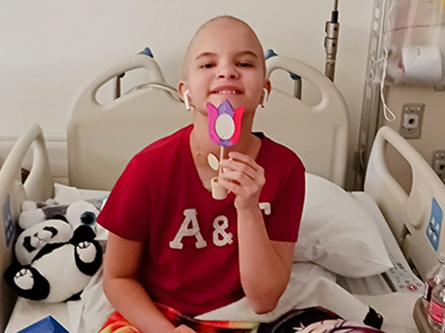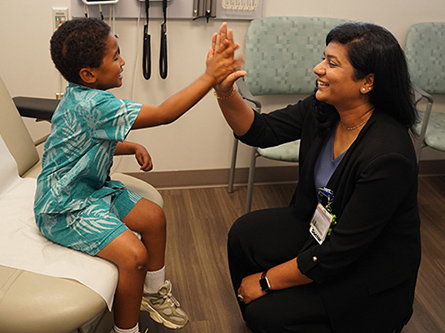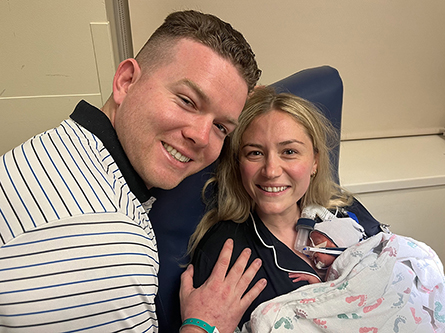Fourteen-year-old Faith Brown was greeted with bubbles and noisemakers from exuberant doctors, nurses, and staff as she and her family walked through the pediatrics unit for the last time.
Faith had one final job to do before leaving UC Davis Children’s Hospital: She needed to ring the bell!
A brass bell hangs on the wall in the hallway of the unit. Patients ring it when they’ve finished treatment for cancer or a transplant. In Faith’s case, it was a stem cell transplant to treat a type of leukemia.
A nurse held a banner that said, “Way to go!” It was signed by her care team. Another sign read, “We are so proud of you.”
Faith grabbed the rope and rang the bell multiple times with a bright clang.
“Three cheers for the best feeling in the world,” shouted Faith’s mother, Angie Evans, which was met with more clapping and cheering.
The moment was made possible by the revitalized UC Davis pediatric stem cell transplant (also known as a bone marrow transplant) program. UC Davis Health is the only provider of this specialized service for children in the Sacramento area.
It is led by Lisa Madden, a pediatric hematologist and oncologist at UC Davis Comprehensive Cancer Center, who has expertise in the fields of stem cell transplant and cellular therapies.
“This is an exciting time to be in the field of stem cell transplant. We are constantly expanding the diseases for which we can offer transplant, sometimes using modalities that are less toxic to the patient,” Madden said. “Stem cell transplant is a procedure that is lifesaving. In the case of cancer, this is more immediately obvious. But stem cell transplant can be used to treat other lethal disorders in which there is a slow progression to organ failure, and in which lifespan is otherwise shortened and often painful. Diseases in this category include sickle cell disease and thalassemia, some metabolic disorders like Hurler Syndrome from which patients otherwise don’t live past early childhood, and also some immune disorders from which patients get constant infections. When things go well, they are cured, they no longer have to come to clinic constantly for things like blood transfusions. It can truly change their lives.”





